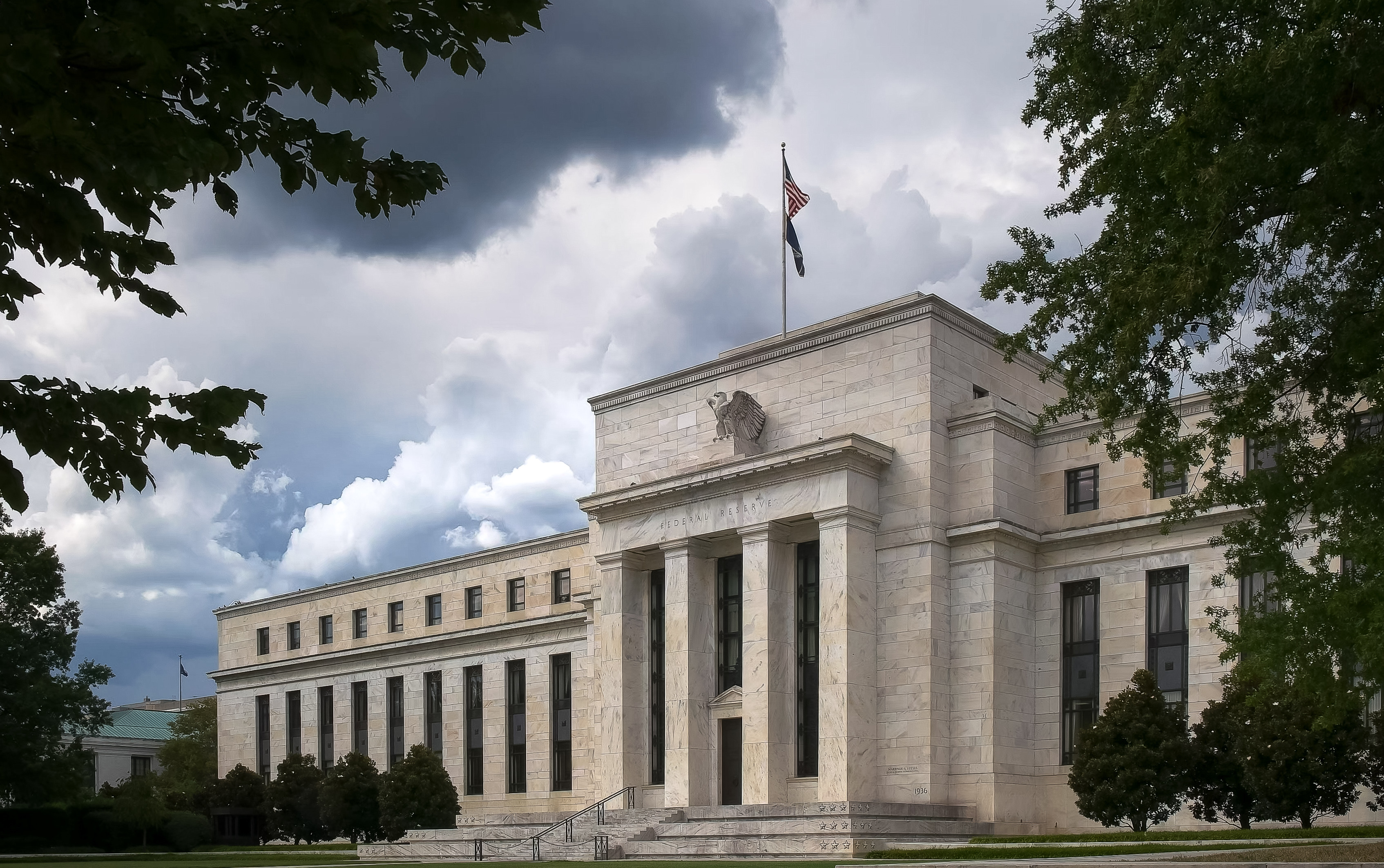Answering key questions about FTX’s collapse

Crypto winter has taken a harsh turn in the wake of FTX’s collapse. We’re breaking down what you need to know. [Image via Adam Chang]
Before we begin this week, a quick programming note: Bytes will be off next week, but back in your inboxes the following week. Now back to business. Here’s what you need to know this week:
FTX’s collapse raised many questions inside and outside the crypto industry. A closer look at some key talking points that have emerged.
What Coinbase customers should know amid market turbulence. Our approach to protecting your account and assets.
Several pro-crypto candidates are heading to Washington D.C. Meet the politicians who will likely be at the center of the crypto debate.
FTX FALLOUT
4 key questions about the impact of FTX’s collapse
Last Friday, the beleaguered crypto exchange FTX filed for bankruptcy after a stunning five-day collapse of the once-$32 billion dollar crypto empire. The company is now facing investigations in both the Bahamas and the U.S. for its handling of users’ assets.
FTX’s books revealed the exchange had more than $9 billion in liabilities, but less than $1 billion in liquid assets the day before its bankruptcy filing. And after an apparent hack drained $477 million of the company’s remaining assets on Friday night, customers are facing long odds of ever recovering much of their deposits. At least $1 billion in customer funds are unaccounted for, and FTX may owe as many as one million creditors.
As the business world tries to keep pace with this fast-moving story, we’re attempting to answer a few bigger picture questions about FTX’s collapse and its implications for the crypto industry. Let’s dive in.
How have crypto markets and businesses been affected?
Crypto’s total market cap has dropped below the $1 trillion mark since FTX’s trouble started early last week, and sits near $826 billion as of Wednesday morning. After the firm’s Friday bankruptcy filing, BTC sank nearly 25%, dropping below $16,000, before slightly recovering; ETH fell by more than 30% in the same span.
Market contagion and liquidity issues have spread to a growing number of crypto businesses, from lenders including Genesis Global Capital, BlockFi, and Voyager to web3 VCs like Paradigm, Ikigia, and Galois. On Wednesday, Genesis, a leading lender in the crypto industry, suspended redemptions, citing “extreme market dislocation … caused by the FTX implosion.” Last week, BlockFi halted withdrawals and cited “significant exposure to FTX.” They are now planning to file for bankruptcy. Voyager, a bankrupt lender that FTX had planned to purchase for $1.4 billion, no longer has a buyer, meaning its customers might not be able to recover funds.
FTX’s collapse has also disrupted the Solana ecosystem. The exchange was heavily invested in SOL and many of Solana’s DeFi projects were also allegedly backed by FTX. The token lost more than 60% of its value in the week after rumors of FTX’s insolvency began.
Have larger investors and traditional firms been impacted?
Since its founding in 2019, FTX raised nearly $2 billion in capital from sources like venture capital firms and pension funds, and its bankruptcy means that many of its investors will likely need to write their investments off as losses.
SoftBank, Tiger Global, and Sequoia Capital are among the many well-known firms who made now-worthless bets on FTX. Last Wednesday, Sequoia sent a letter to investors that the firm was marking its $213 million stake down to $0.
The impact isn’t limited to venture capital firms either — the Ontario Teachers Pension Fund lost $95 million investing in FTX’s funding rounds and athletes like tennis star Naomi Osaka and NFL quarterback Tom Brady are among the individuals who had equity stakes in the company.
What does this mean for the future of crypto regulation in the U.S.?
In the wake of the exchange’s collapse, there has been a chorus of calls from business leaders and lawmakers regarding the need for greater oversight of the crypto industry. U.S. Congressman Patrick McHenry, the top Republican on the House Financial Services Committee, said last week: “It’s imperative that Congress establish a framework that ensures Americans have adequate protections while also allowing innovation to thrive here in the U.S.”
Coinbase CEO Brian Armstrong noted in an op-ed for CNBC on Friday that the U.S.’s confusing array of existing regulations have failed to provide a workable framework for how crypto services “can be offered in a safe, transparent way.” As a result, users have been engaging with risky, offshore platforms like FTX that have little regulatory oversight and are largely outside the protection of U.S. regulators.
The solution, said Armstrong, is to create smarter regulation that protects consumers and makes the U.S. a more attractive place for crypto companies to operate. “Those of us who care about the future of crypto want to create sensible regulation for centralized exchanges and custodians in the U.S. and other regions,” he said.
What should I know as a Coinbase customer?
Coinbase has a clear approach to transparency, risk management, and consumer protection, as outlined in a recent blog post by CFO Alesia Hass. Here’s the TLDR.
Coinbase has very little exposure to FTX and our customers are not in any direct danger of liquidity or credit risk.
There can never be a “run on the bank” at Coinbase because we hold all consumer assets 1:1, which can be reviewed in our publicly filed, audited financial statements.
Coinbase is extremely well capitalized, with $5 billion in cash and cash equivalents.
Our risk team has decades of experience managing trading and credit businesses across a range of economic cycles. Our prudent approach to risk management is part of how we keep customers safe.
Additional resources from around Coinbase
There has been a surge in questions this week around how to safely and securely transfer assets to Coinbase. Here’s a guide to doing so. And if you’re looking for an alternative to import your self-custody wallet, check out Coinbase Wallet. You can import today following these steps and pay no gas fees along the way.
Brian Armstrong will be hosting a Twitter Spaces with Ryan Selkis, co-founder and CEO of Messari, on Wednesday November 16 from 11am-12pm PT to talk about the FTX news and where we go from here. If you miss the chance to listen live, you can find a recording of this conversation through our Around the Block podcast on Thursday via Spotify or YouTube.
Coinbase’s Institutional Research team has published a new report that looks at how the FTX bankruptcy could continue to impact the crypto industry.
POLITICAL CAPITAL
How U.S. midterm election results could impact crypto regulations
According to a recent survey conducted by GMI PAC, a crypto-focused group, 44% of U.S. voters are “crypto voters,” which pollsters define as owning or considering owning digital assets. With the U.S. midterm results nearly settled, and calls for clear crypto regulation mounting in the wake of FTX’s collapse, a group of newly elected, and re-elected, politicians in Washington will likely play a pivotal role in shaping the regulatory conversation. Here’s a quick look at some of those politicians.
Rep. Harriet Hageman: A newly elected Republican from Wyoming, a state that has taken a leading role in proposing crypto-friendly laws, Hageman is a proponent of limiting the federal government’s influence over parts of the industry, like mining operations. Crypto is “an important states’ rights issue,” she said over the summer. Sen. Cynthia Lummis (R-Wyo.), a vocal crypto advocate and co-author of the Responsible Financial Innovation Act, called Hageman “an excellent teammate” to have in Washington.
Rep. Jonathan Jackson: An incoming Democrat from Illinois, Jackson was propelled to office in part due to a swath of donations from crypto-related political groups including Three PACs, DAO for America, Web3 Forward, and Protect Our Future. Jackson has said he supports regulations that promote innovation “and add clarity and protection for those entering this burgeoning arena.”
The Congressional Blockchain Caucus: Several representatives in this bipartisan group won re-election, including chairs Tom Emmer (R-Minn.) and Bill Foster (D-Ill.), and caucus members Josh Gottheimer (D-N.J.), and Richie Torres (D-N.Y.) The congressional group says that it supports a “light touch regulatory approach” and is focused on blockchain technology applications like “identity management, asset tracking and ownership, healthcare records management, [and] intellectual property rights.”
Why it matters… As calls for regulatory clarity grow from business leaders and politicians alike, the 118th U.S. Congress will likely face increased pressure to formulate clear laws to guide the crypto industry in the U.S. A possible starting point? Three key bills proposed earlier this year are already awaiting congressional action in 2023.
NFL NFTS
Rarity League’s NFL helmet NFTs are a real game changer
For football fans who can never get enough NFL excitement, the latest Rarity League release should be top of mind. This NFT collection features official NFL-licensed, one-of-a-kind helmets for all 32 NFL teams that are integrated into NFL Rivals, the first NFL and NFLPA officially licensed video game on the blockchain. The latest release dropped on Tuesday, and you can use Coinbase Wallet to get in on the collector action at RarityLeague.com.
TOKEN TRIVIA
How frequent are Bitcoin halvings?
A
Every six months
B
Every six years
C
Once per decade
D
Every four years
Find the answer below.
Trivia Answer
D
Every four years











